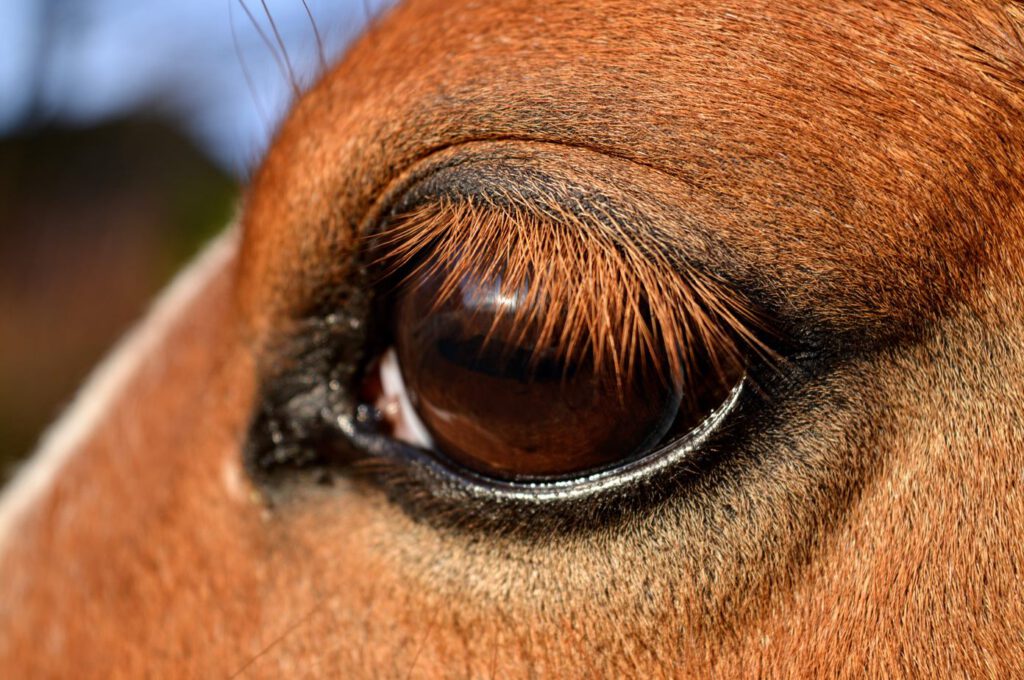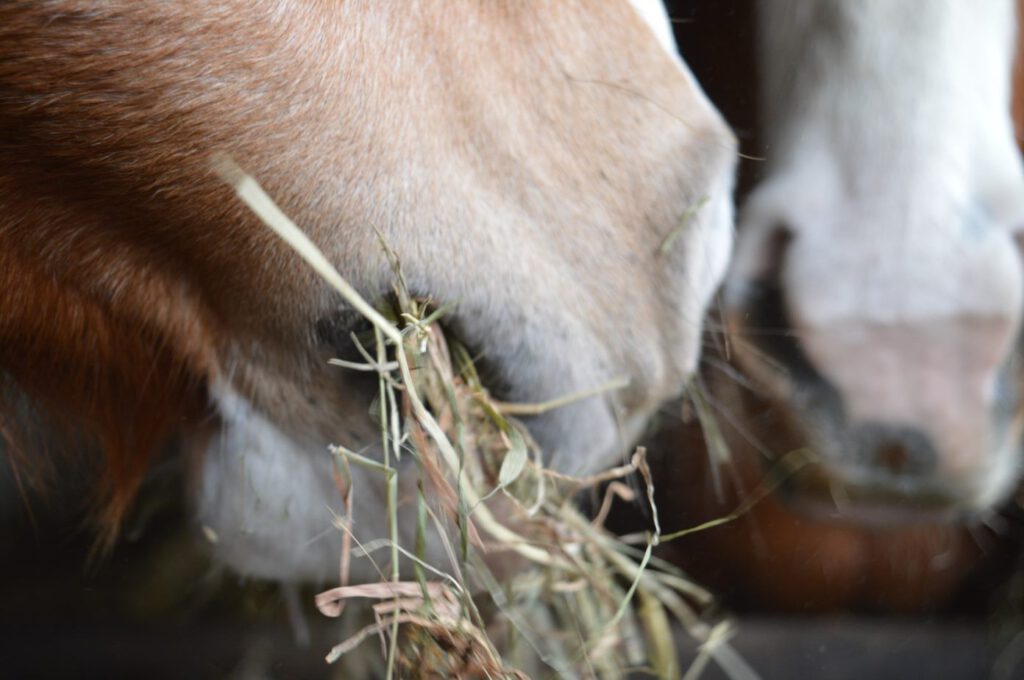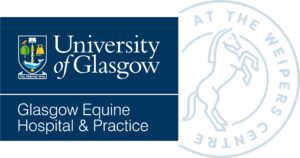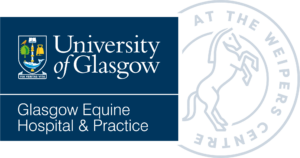Internal Medicine
Led by David Sutton, Tine Schliewert and Joel Hotchkiss, the team provides a 24 hour service for the investigation and treatment of a diverse range of medical conditions in equids. Following referral from our first opinion practice or other practices, horses may present for investigation only or can be admitted to the hospital for round-the-clock care. Some of the services provided by our equine internal medicine service include
Critical Care
The Glasgow Equine Hospital provides a 24-hour equine critical care service. Our experienced team of clinicians and nurses are available to investigate and treat all types of equine emergencies, including colic, colitis, pneumonia and pleuropneumonia, cardiac, and neurological conditions.
Our comprehensive in-house diagnostic laboratory service, supplemented by several horse-side laboratory services, ensure that a horse’s metabolic status can be evaluated 24/7. Where appropriate, medical investigation and further treatment will be conducted in collaboration with colleagues from our surgical team if required.
Neonatology
Sick foals, whether new-born or older, can require a high level of veterinary and nursing care to maximise the possibility of a successful outcome. The internal medicine team at Glasgow Equine Hospital provides 24/7 emergency services for foals and their mares.
Dedicated boxes for the most critically ill foals allow mares to be stabled in the same box as the foal, or alongside the foal where they can see and smell their foal over special barriers, so that natural bonding is not disrupted. Additional mare and foal boxes are available in the hospital yard for foals requiring a less intensive level of care. With various forms of monitoring equipment and access to on-site clinical pathology services, sick foals can be monitored closely by our team during their hospital stay.
Cardiology
Heart abnormalities, including murmurs and dysrhythmias (abnormal heart beat) are relatively common in the horse. These abnormalities may be insignificant, however, in some cases they may contribute to exercise intolerance and could even be life-threatening.
Internal medicine specialists at Glasgow Equine Hospital can investigate murmurs and rhythm changes identified during pre-purchase examinations, or during routine health checks, in addition to referrals for poor performance or illness associated with cardiac conditions.
A full cardiac assessment will consist of a combination of auscultation (listening to sounds from the heart), echocardiography (ultrasound examination of the heart to assess heart structure and movement) and electrocardiography (ECG; evaluation of the electrical activity of the heart) at rest and during exercise to arrive at a definitive diagnosis and treatment plan for your horse.
Dermatology
Skin conditions in horses are common and, in some cases, may be an indication of underlying systemic illness.
Having access to a full range of laboratory facilities, our internal medicine specialists offer routine appointments and accept referrals for various types of dermatological conditions, including allergies or immune mediated conditions, infectious diseases, congenital disorders, chemical or toxic dermatologic reactions, changes in skin or hair colour, localised or widespread swelling, tumours, nutritional disorders and endocrine disorders.
Neurology
Horses may be affected by several disorders of the central nervous system (brain and spinal cord), or peripheral nervous system (serving the limbs and organs). Our internal medicine specialists provide routine and emergency referral services for cases requiring investigation and treatment of spinal, intracranial and neuromuscular disorders such as “Wobbler” syndrome, inflammatory disorders, seizures and spinal injuries.
Opthalmology
Ocular conditions in the horse are common and if inappropriately treated can result in permanent damage to the eye, including loss of vision or even loss of the eye itself. Depending on the condition, it can be difficult to treat at home as it may require intensive treatment, with frequent administration of ocular medications to the eye day and night.
The internal medicine service at Glasgow Equine Hospital can provide a comprehensive service for evaluation and treatment of various ocular conditions, and can provide continued in-hospital monitoring and treatment for cases requiring intensive treatment.

Recurrent Colic
Some horses suffer from repeated bouts of colic. Thorough investigation into the specific cause of the colic can help to diagnose the site of pain so that treatment can be instigated. The internal medicine team at Glasgow Equine Hospital can perform various diagnostic investigations to determine the cause of recurrent colic, including gastroscopy (to visualise the stomach lining), abdominal ultrasonography, blood sampling, abdominocentesis (peritoneal tap to assess the nature of the fluid accumulating in the abdomen), biopsies (liver, duodenal and rectal) and cystoscopy (visualising the lining of the bladder).
Weight Loss & Digestive Disorders
There are many causes of digestive disorders and weight loss, either related to the gastrointestinal system or other organs in the body. The internal medicine team at Glasgow Equine Hospital can perform a comprehensive examination of cases of weight loss and/or digestive disorders, including a clinical and dental examination, rectal palpation, blood sampling, gastroduodenoscopy (endoscopy of the stomach and first part of the small intestine), rectal/duodenal biopsies, dynamic absorption tests, faecal analysis and ultrasonography of the abdomen. Where indicated, surgical exploration of the abdomen may be performed.

Gastric Ulcers
Gastric ulcers are common in all types of horses and can be a cause of ill-thrift, recurrent colic or poor performance. Equine gastric ulcer syndrome (EGUS) affects the mucosa (lining) of the stomach causing inflammation and erosions of varying depth.
There are two different types of mucosae in the horse’s stomach: squamous and glandular. What causes ulcers is complicated and probably differs between the two mucosal types. Depending on the location of ulcers, treatment differs and definitive diagnosis is achieved through gastroscopy (endoscopy of the stomach).
Internal medicine specialists at Glasgow Equine Hospital can provide routine gastroscopy in cases of suspected EGUS. When booking a gastroscopy appointment at Glasgow Equine Hospital, you will be advised on pre-procedure feeding in order to optimize the success of the procedure.
Endocrinology
Over recent years, our understanding of laminitis has changed, with increased emphasis on investigation of the underlying endocrinopathic disease causing the laminitis. The internal medicine team at Glasgow Equine Hospital can provide in depth investigation of your horse’s risk for laminitis, and provide detailed treatment plans for Equine Metabolic Syndrome and Pituitary Pars Intermedia Dysfunction.
Other parts of the horse’s endocrine system can also occasionally become over or under active, with signs that are subtle and require detailed investigation.


